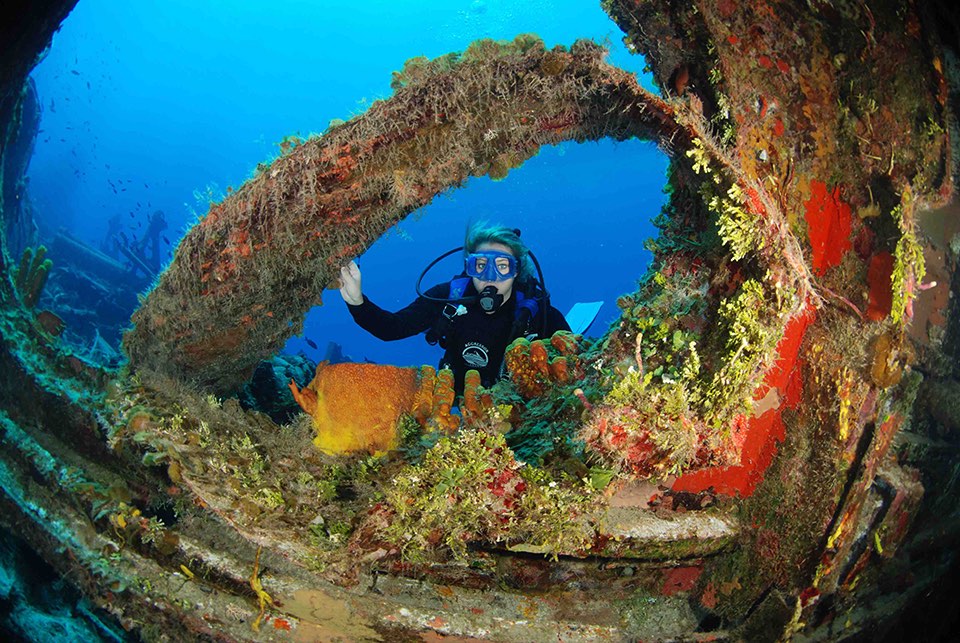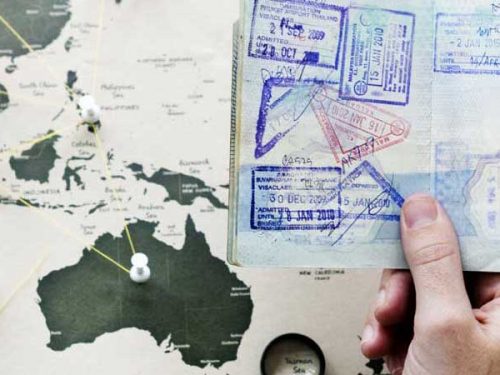 So you’ve got the idea that you’ll do your scuba diving certification on vacation. But once you get there, you realize that it requires you to do hours of theory stuck inside while your family and friends are out enjoying the sunshine. Perhaps you decide to do a Discover Scuba session instead (which doesn’t give you an Open Water Diver certification). Or maybe you give up on the idea altogether and say “next time”.
So you’ve got the idea that you’ll do your scuba diving certification on vacation. But once you get there, you realize that it requires you to do hours of theory stuck inside while your family and friends are out enjoying the sunshine. Perhaps you decide to do a Discover Scuba session instead (which doesn’t give you an Open Water Diver certification). Or maybe you give up on the idea altogether and say “next time”.
But if you plan ahead of time, it’s possible to do the theory component of your Open Water Diver certification at home, either online or with your local dive shop. Then once you arrive at your vacation destination, you’re ready to hit the water and complete your certification dives.
The Referral System
If you turn up at a dive resort wanting to do your Open Water Diver certification, it takes around five days to complete (providing there is an instructor available). That includes the theory component, confined water sessions (usually done in a swimming pool) and your certification dives in the open water.
For some people, this feels too rushed, with so much information to absorb. Chances are you’ll spend some evenings studying or reviewing what you’ve learnt that day. You also need a break of 24 hours following your last dive before you fly and if bad weather sets in, you might not be able to complete your Open Water Diver certification in five consecutive days.
If you take the knowledge portion and confined water sessions with an instructor at your local dive shop, they will give you a referral form on completion. This is valid for a year and can be taken to a dive center at your vacation destination. It will then only take 2 1/2 to three days to complete your Open Water certification, all while experiencing the underwater wonders you came to see! You’ll arrive with a better understanding of the basic skills of scuba diving and can complete the practical component at a more leisurely pace.
There’s also the option to complete the theory component online, then do the confined water sessions at your local dive shop. If you don’t live near the coast or somewhere with a dive shop, you can also complete the confined water sessions with an instructor at your dive resort. You’ll still spend less time inside doing theory and more time out enjoying the tropical environment.
Take Your Time
 Resort-based scuba training often feels rushed as you’re trying to cram as much knowledge into a short space of time. Even if you don’t feel completely comfortable with certain skills, you might feel pressured to go ahead with your open water dives because you’re flying out in a few days and have already paid your money.
Resort-based scuba training often feels rushed as you’re trying to cram as much knowledge into a short space of time. Even if you don’t feel completely comfortable with certain skills, you might feel pressured to go ahead with your open water dives because you’re flying out in a few days and have already paid your money.
By doing the theory and confined water components at a local dive shop, you can take your time to study. The knowledge component can be spread over a few weeks and the confined water training (which is the most important part of any Open Water certification) can be completed at your own pace.
It’s during this session that you’ll put to test all the basic skills you’ve learnt during the theory sessions. For some people, this comes easily, while for others it doesn’t. If you don’t feel comfortable after one session, you can always book in for a follow up to make sure you’re ready to dive in the open water.
On Vacation
Once you arrive at your vacation destination, you’ll do a short quiz testing you on the knowledge element of your training, followed by a refresher on your skills in confined water (usually the dive center or resort’s pool). You’re then ready to complete your open water dives and become a certified Open Water Diver.
When planning your vacation, look for a dive center or resort that uses the same accreditation agency as your local dive shop. Your local instructor may even be able to recommend a dive center for you. Online reviews are a good way of finding out what other divers’ experiences were at the dive center and how comprehensive they found the training.
Doing your theory and confined water components at a local dive shop is not accessible to all people but make a lot of sense if it is. Not only will you be able to study in a more relaxed manner and absorb what you are learning but you won’t feel rushed to jump in the open water if you’re not 100% confident with the basic skills.
Rather than slogging through theory, that vacation you’ve worked so hard for will be spent revelling in the sunshine and enjoying a range of other activities, in addition to scuba diving.







